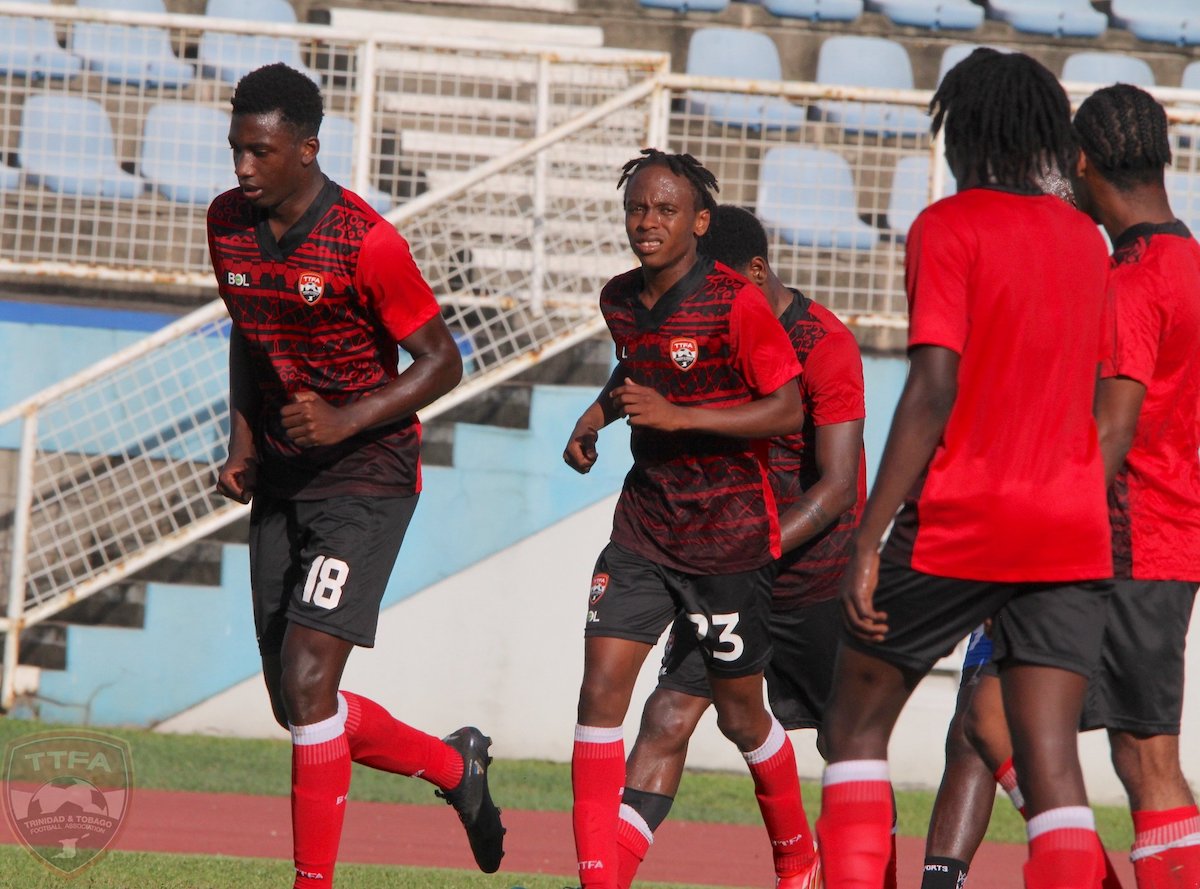The national Under-20s beat Defence Force in their latest-warm-up match against local club teams on Monday. Good for them.
I didn’t get to see any of the action, having already left the Ato Boldon Stadium after coach Angus Eve’s press conference. I wish I’d stayed a little while longer.
Eve spoke in positive tones about how the live-in camp was going in preparation for next month’s CONCACAF Under-20 Championship assignment in Honduras.
He used expressions like “really well” and “very competitive” to describe how the camp with 30-plus youngsters pulled from both home and abroad had been moving along.
When Angus speaks, you generally know where things stand. So I take him at his word that some good things have been happening in the camp at the Home of Football.
It still would have been good, though, to see what the players have been doing in matches.
I remember the press briefing women’s Under-17 coach Jason Spence gave before that team’s recent CONCACAF tournament in the Dominican Republic. Then I watched the games against Nicaragua, Panama and Mexico and could not marry what I heard from management and what I saw in practice. And what I saw, was a team that could barely keep hold of the ball for more than two passes, if so much. I felt sorry for the youngsters who just looked out of their depth.
I bring up the female Under-17s because they are the most recent example. But this inability to execute the basics properly has been a recurring theme with national teams - male and female - at all levels for some time now.
This problem precedes Covid-19. The pandemic has just complicated preparation. But the struggle of local players to execute the fundamentals is not headline news anymore.
I bring this up again because, the “good team structure” that coach Eve spoke about establishing with the Under-20s within which they can operate in Honduras, will have no chance of success if his players can’t keep hold of the ball, whether they are defending or trying to launch an attack.
Coaches like Eve, Spence and senior women’s coach Kenwyne Jones ultimately have to accept responsibility for results. It’s the nature of their business.
But there is so much and no more a coach at national level can do when his job is to prepare a team for competition.
Not to over-simplify the matter then, I ask these questions: How are young players learning to play football? Who is teaching them? What are they being taught?
The answers to those questions might be key to fixing the deficiencies that exist.
So many things have changed over the last 40 years or so. The Trinidad and Tobago society today is different from the one that existed in the decades before the 1980s. Those changes have affected not only how people live and work, but also how they play.
Young people don’t do as much physical playing as they used to. Street football and cricket are rare sights nowadays. In short, youngsters seem to spend less time on developing their physical skills which translates, for the purpose of this piece into players spending less time developing their individual games. They don’t “live” with the ball. The repetition that came so naturally in times past because of how often fellows were playing football is no longer there.
It seems that coaches now have to do more work with individuals. But coaches too are different. We find them more now in “schools” and “academies,” not simply volunteering their time to work one-on-one with a youngster.
Those days of pure volunteerism are not coming back. So now it is the task of the people who administer the game to find ways to instil the kind of work ethic and commitment required in both those who play and the ones who train them.
And that is the real problem. How to achieve that?
It is the same fundamental issue that has also stymied West Indies cricket for nearly 30 years.
There are more coaching programmes now in football and cricket than ever before but yet, the quality of player does not seem to be improving. So the issue is less about tuition than how that tuition is being applied.
It was interesting to hear the Football Association’s technical director Anton Corneal speak recently about a “reset” that focusses on youth development.
I just hope “reset” doesn’t translate into a repeat of the same old mistakes.
SOURCE: T&T Express

